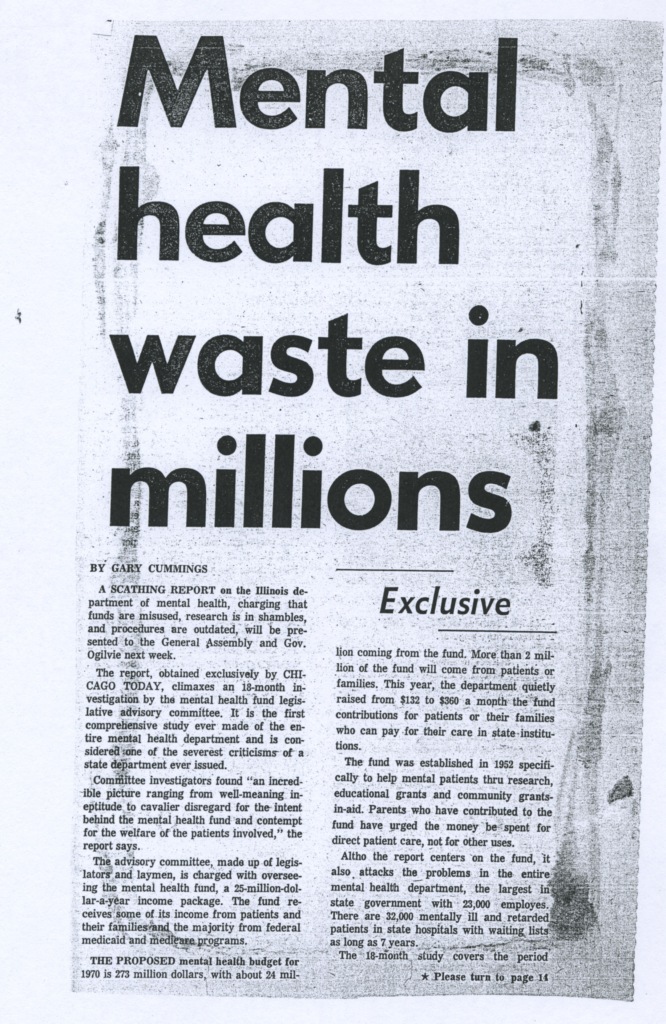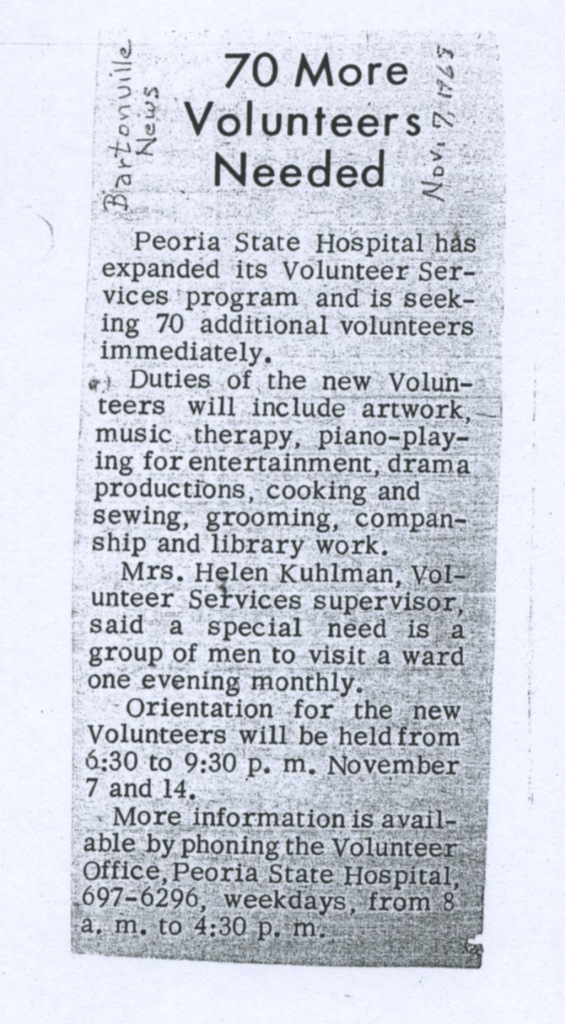The problem presented itself over 100 years ago is still very much alive today. There were mentally ill people, no means to treat them, and nowhere to put them. Back then, psychiatric drugs were yet to be discovered and many families couldn’t control their own severely mentally ill family members. By the mid-1800s, asylums were popping up everywhere throughout Europe & America, housing and caring for “this most helpless and pitiful class of sufferers.” Building plans improved over the years with the widespread idea of the cottage plan, which offered open air and better treatment. All was well for the Peoria State Hospital but by the 1930s, it and fellow asylums were growing exponentially. The funding wasn’t available to deal with the issues of overcrowding. By the 1960s, patients who had families were moved to home programs once stabilized on drugs.
Mirroring the past, the state is broke and cannot afford to keep the asylums open. With mental health programs being cut, families are left with limited to no options. The interviewees in FOR THE INCURABLE INSANE make constructive suggestions as to what can be done about our crumbling mental health system in America. However, these suggestions can only be obtainable by our government to cause any drastic change for the better of our society. Care and rehabilitation for the mentally ill are costly and the first who should complain, rarely have the ability to do so.
For centuries, our society has begged not only our government but also communities to help save Dr. Zeller’s dream of offering outstanding care for the unwanted and misunderstood. The Peoria State Hospital closed in 1973 and where many of the patients were transferred to other hospitals or nursing homes, others were sent out on their own and failed to maintain a stable life out in society. William “Bill” Turner referred to it as, “curbside therapy”. They are the tattered people of society who were left to fall in the cracks after the hospitals were closed. Not able to offer themselves what many would consider “acceptable”, some aren’t even accepted by their own families. This kind of stuff is still happening today.
Help bring this documentary to your local library for public screenings to begin conversation about something no one seems to be talking about.


0 Comments